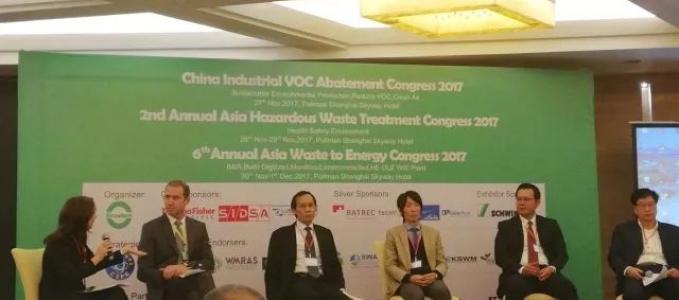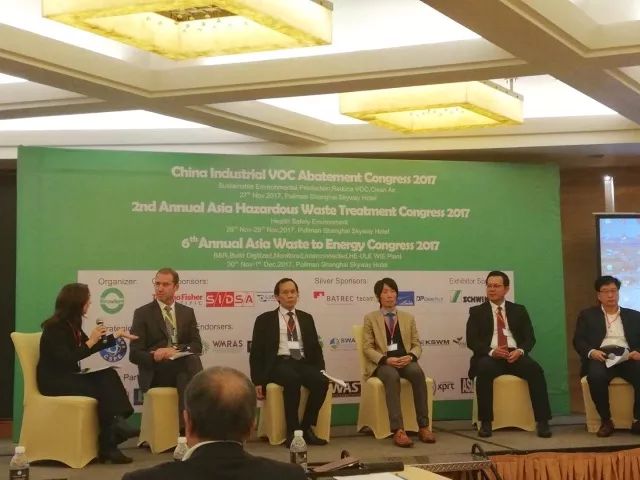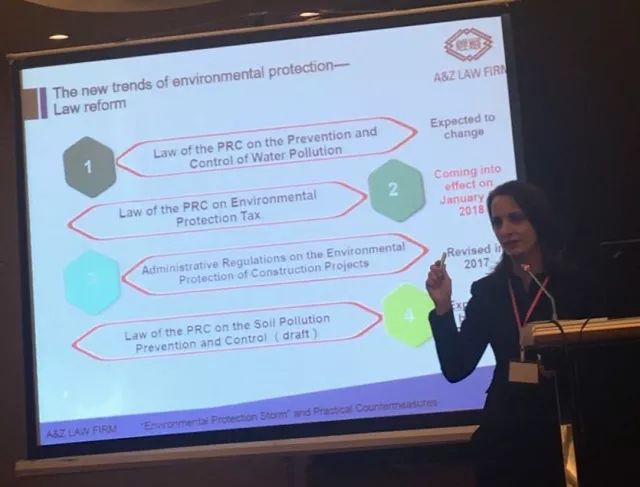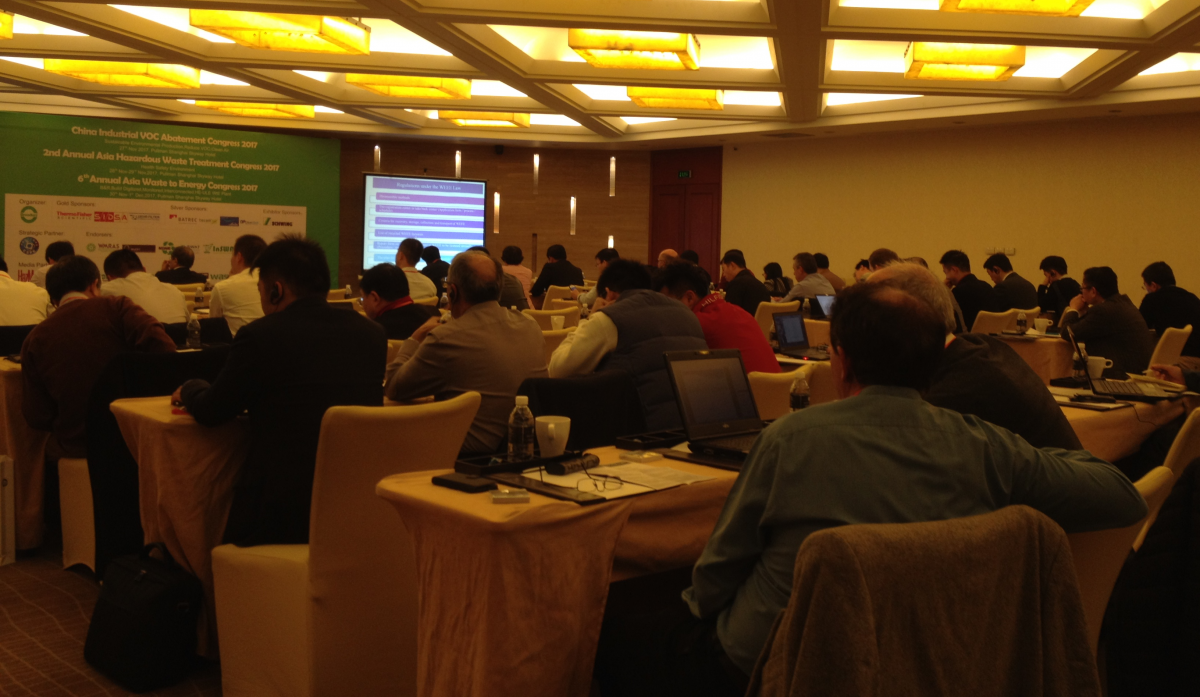A&Z Moderated The Asia Hazardous Waste Treatment Congress 2017
A&Z Moderated The Asia Hazardous Waste Treatment Congress 2017

On 28th November 2017, Broaders organized the “Second Annual Asia Hazardous Waste Treatment Congress” in Shanghai Pullman Skyway Hotel.
The event comprised key industry leaders, esteemed officials, other distinguished industry delegates and top officials from Asia.

Panel Discussion on November 28th, including, leftmost: Mireia Paulo, Director of the European-American Market and Overseas Investment Projects at A&Z Law Firm; and second from the left: General Manager, Veolia China Industrial Services.
Hazardous waste poses a substantial and potential threat to public health and the environment. Among this type of waste, heavy metals and toxic chemicals can be identified as an input and an output of industrial processes and manufacturing products.
The annual congress comprised several panels of experts who introduced companies and start-ups that proposed solutions available on the market. High-technology products were presented to improve hazardous waste treatment, disposal and storage systems. Tecam Group, for example, offers specific answers for industries to help them meet environmental standards in terms of VOC (Volatile Organic Compound) emissions treatment and waste control.
On the other hand, challenges that companies and government bodies regularly face were also acknowledged in terms of dealing with the lack of adequate infrastructure and know-how. Among those challenges was the notable lack of technology for sufficiently processing both physical waste and airborne pollution.
Despite the fact that the capabilities of waste treatment have improved in recent years in China, the possibilities available to companies are still limited by many factors, and one of the most significant relates to their economic and human resources. Finding suitable solutions for the public and private sectors requires technical expertise.

On 29th November, Mireia Paulo, Director of the European-American Market and Overseas Investment Projects at A&Z Law Firm, representing A&Z’s EHS Department, spoke about the “Environmental Protection Storm” and Practical Countermeasures in China. Ms. Paulo first addressed the 19th National Congress of the Communist Party of China (October 2017)’s new guidelines and new enforcements for environmental protection in China.
The second part of her speech focused on the importance of environmental protection laws and regulations, and the fact that the enforcement of these laws and regulations is still relatively limited. In light of the data shown during the congress in terms of air, water and soil pollution in China between 2010 and 2017, the issue has become too significant to ignore. According to the Chinese Environment Status Report 2016, only 24.9% of the Chinese cities (84 out of 338 cities) meet national air quality standards. China’s wastewater volume is comparable to the Yellow River’s annual flow. In 2012, for instance, the total discharge of wastewater in the country amounted to 68.5 billion tones, which is comparable in volume to the annual flow of the Yellow River of 58 billion m³ per annum.
In 2018, several significant laws and regulations will be reviewed and will enter into effect. Examples of these are the Law of the People's Republic of China on Prevention and Control of Water Pollution, the Administrative Regulations on the Environmental Protection of Construction Projects revised in 2017, and the Law of the PRC on Soil Pollution Prevention and Control.
Attention should be paid to the Environmental Protection Tax Law. This will take effect on January 1st 2018. The law will replace the current pollutant discharge fee system. It will target the enterprises and other entities that emit taxable pollutants and will not tax those discharging pollutants.
What are taxable pollutants? The law lists these pollutants which include solid waste, air and water pollutants, and even noise. Carbon dioxide (CO2) is not included.
In addition, local governments will determine the applicable tax amount on air and water pollutants within a specified range. The tax will be calculated monthly and declared and paid quarterly.
Ms. Paulo concluded the speech by explaining some practical countermeasures for companies operating in China. As responsibilities have shifted from the government to the private sector, the principal advice given was for companies to do their own homework, such as carrying out internal risk control system assessments, compliance audits, training, etc. These countermeasures will be relevant in fulfilling upcoming laws and also in avoiding legal liabilities, and even criminal liabilities for those severely violating the laws and causing serious environmental and health problems (Environment Protection Law (2015)).

The congress offered great opportunities to exchange opinions and expertise among officials from different institutions, including from the private sector and technical experts from Asia. It created the appropriate environment to promote businesses and enhance collaborative relationships so as to find solutions to common environmental problems.
The end of the congress was met with applause and conversation, as further questions were asked, answered, and business cards exchanged. A&Z relishes opportunities to participate and engage in such events, not only in the interest of exhibiting the high-quality insight offered by its professionals, but also in the interest of informing foreign companies as to the rules and regulations relevant to their business practices, and the illustration of their rights when undertaking endeavours in China.



